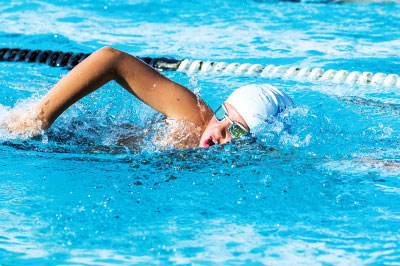Experts Weigh Risks, Benefits of Sports for Youth With ADHD
Abstract
Many studies show that sports can lead to functional improvements in children with ADHD, but these youth are also more likely to experience sports-related injuries.
Sooner or later, many parents are faced with a decision about how best to introduce a child to the world of sports. While there are physical and emotional benefits of sports participation for youth, there are also some risks.

For parents of children with attention-deficit/hyperactivity disorder (ADHD) who have an interest sports, the risk-benefit analysis may take on greater significance. Research has shown that in addition to providing an opportunity for youth to release energy, participation in sports can improve focus and attention. At the same time, there is ample evidence that youth with ADHD have higher risks of sports-related injuries, including concussions.
There’s no right or wrong answer for whether children with ADHD should participate in team sports, as every child’s situation is different, David Conant-Norville, M.D., a child and adolescent psychiatrist and sports psychiatrist at Mind Matters P.C. in Hillsboro, Ore., told Psychiatric News. Still, given the solid research showing that sports can lead to functional improvements in children with ADHD, he said that he believes some degree of athletic participation—even just playing friendly games with neighborhood kids—is useful.
“Sports provide children with focused and experiential learning that you cannot get in a classroom,” Conant-Norville said. “Children can learn how to set short-term goals and long-term goals and how to pace themselves, and learn about winning and losing.”
Conant-Norville has surveyed other sports psychiatrists and found that many believe that individual sports such as swimming or cycling are best for youth with ADHD. These activities are centered around rhythmic, repetitive movements, which are great for developing focus.
In his own practice at Mind Matters, Conant-Norville has developed an ADHD group therapy that incorporates elements of tae kwon do. He chose this activity because it couples an emphasis on discipline and concentration with a reward structure—passing tests to advance in rank and earn a belt in a new color—to keep the kids motivated.
Team sports offer the advantage of camaraderie, which can help children with ADHD develop social skills. On the flip side, there is also the chance of getting yelled at and ostracized by teammates when a child gets distracted and commits a blunder like missing a tackle or dropping an easy fly ball.
Another significant risk posed by many team sports, particularly football and soccer, are concussions. Numerous studies have shown that children with ADHD are more likely to get a sports-related concussion, and when they do, they take longer to recover.
“What has been overlooked in concussion literature, however, is the mental health consequences of these head injuries,” said Robert Davis Moore, Ph.D., an assistant professor of exercise science at the University of South Carolina (USC), who studies concussion recovery.
Moore recently conducted an analysis of nearly 1,000 USC athletes with and without ADHD. He found that athletes with ADHD who experienced a concussion reported much higher scores on depression and anxiety assessments than those who had no history of concussion and athletes without ADHD. This was not a transient phenomenon, as all the interviewed athletes were assessed at least six months after a concussion.
Moore told Psychiatric News that his study could not explain whether the concussion damage was the trigger for depression and anxiety; it is possible that athletes with ADHD feel a stronger connection with their sport and being sidelined due to an injury creates more psychological distress. He is doing some follow-up research now with USC athletes comparing the effects of concussions and orthopedic injuries on depression and anxiety risk.
Moore noted that his study was limited to collegiate athletes, so more research is needed to understand the effects of concussions might be on the mental health of younger athletes. “But if anything, a Division I college athlete is a highly fit and resilient person, so the outcomes might be worse in younger individuals,” he said. “Doctors and psychiatrists who treat athletes at any age should be aware of these mental health risks in ADHD athletes.”
Despite some risks, Moore noted he doesn’t want his data to scare parents from letting children with ADHD play team sports. “I think the outcomes of sports and physical activity are overwhelmingly positive.”
Conant-Norville said that sports can serve as a way for psychiatrists to connect with young patients. “Any psychiatrist seeing children with ADHD should ask them about sports and take an interest in their activities,” he said. “It builds a good rapport, and you can use sports terminology as metaphors in therapy.” Psychiatrists may also able to help children maximize their chance of success in a sport, since they are familiar with their strengths and areas that need improvement.
Psychiatrists should also work with parents to help families make realistic decisions and make sure sports do not become too important. If parents place too great an emphasis on sports, “then the children become demoralized if they don’t live up to the expectations.,” he said.
If the right balance is achieved, though, Conant-Norville has seen children thrive. “What I’ve found is that when children are doing something they are really passionate about—and this goes beyond sports—their ADHD does not exist in that moment.” ■



